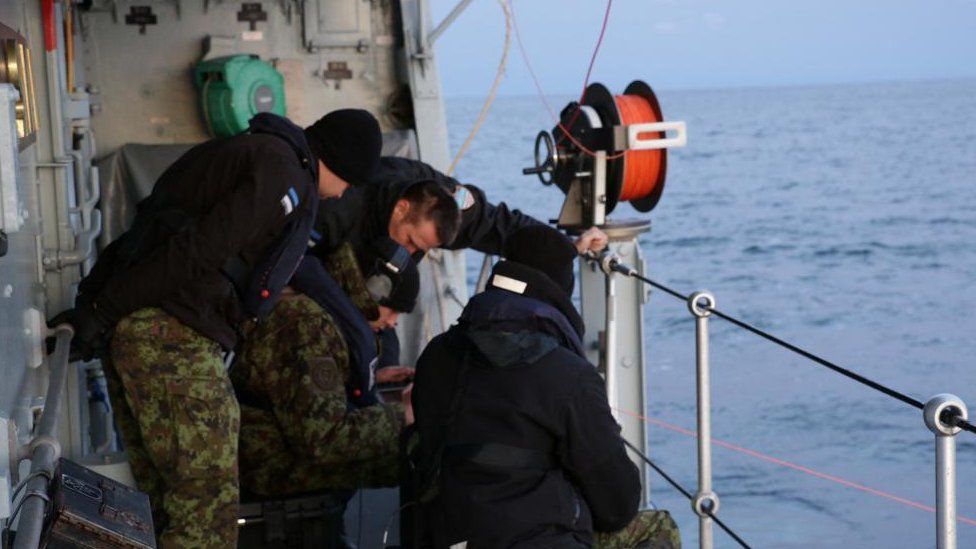An undersea telecoms cable connecting Estonia and Sweden has been damaged, the Swedish government has announced.
Civil defence minister Carl-Oskar Bohlin said the cable was damaged but not completely destroyed.
The cable is believed to have been affected at the same time as a gas pipeline connecting Finland and Estonia was damaged earlier this month.
Sources told the BBC Finland suspects Russian sabotage in “retribution” after the country joined Nato.
Russian President Vladimir Putin denied the accusation, calling it “rubbish”. Finland said last week that the pipeline was likely intentionally sabotaged.
At a press conference on Tuesday, Mr Bohlin said the cause of the damage remains unknown. Swedish investigators will cooperate with their Finnish and Estonian counterparts, he added.
Damage to the natural gas pipeline between Estonia and Finland was detected on 8 October. Finnish authorities said the pipeline, as well as a telecoms cable, were damaged in two places.
Finnish investigators separately identified two ships they said were operating on the day of the incident in the area where the damage was discovered. One ship was Russian-flagged and the other was Chinese-owned, they said.
Mr Bohlin said the damage happened “at a similar time and in physical proximity” to the previously reported incident. Swedish network Arelion confirmed that one of its fibre optic cables had been damaged.
Countries on the Baltic Sea have been in a state of heightened vigilance regarding potential sabotage of undersea infrastructure since last September, when the Nord Stream 2 undersea pipeline was rendered inoperable by a series of explosions.
It remains unclear which state or actor was responsible for the attack on Nord Stream 2, which was built to transport natural gas from Russia to Germany – though it was never put into service.
Ukraine has denied reports that a pro-Ukrainian group was responsible for the blasts. Russia has also denied any involvement.
At a meeting of the British-led Joint Expeditionary Force last week, Swedish Prime Minister Ulf Kristersson warned that undersea data cables were liable to sabotage.
“There is a spaghetti of cables on the seabed,” Mr Kristersson said on Friday, adding that the infrastructure was both essential to the modern economy and vulnerable to attack.
Sweden applied to join Nato in 2022, at the same time as Finland. But while Finland’s accession was approved in April, Sweden’s bid has been held up by opposition from Hungary and Turkey and the country remains outside the alliance.
